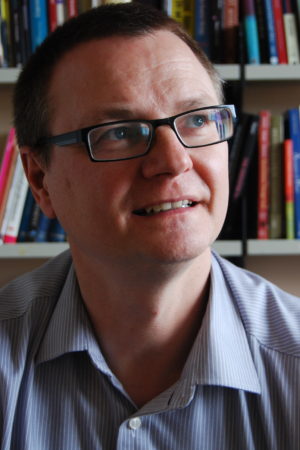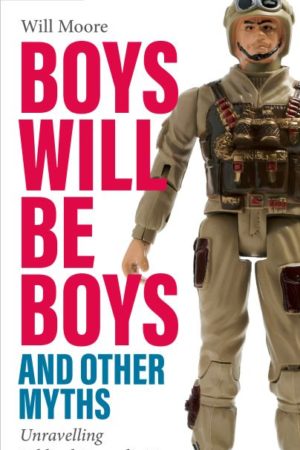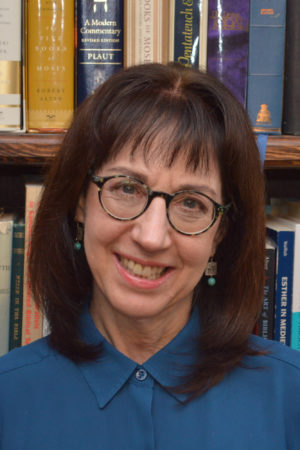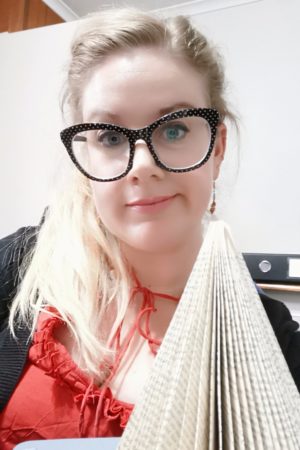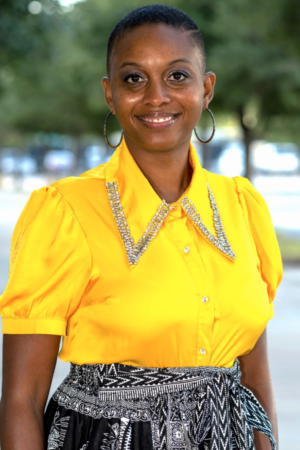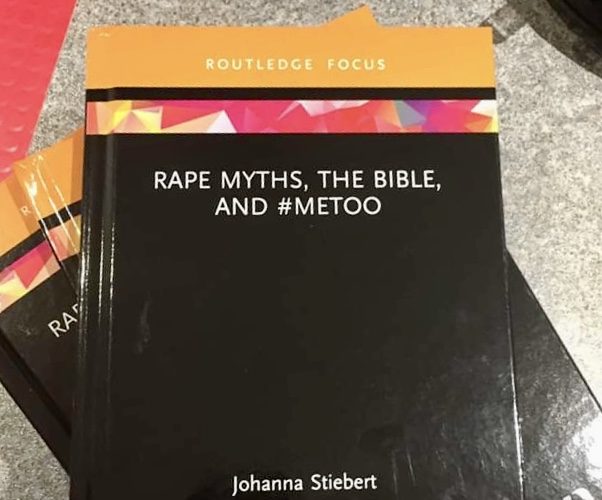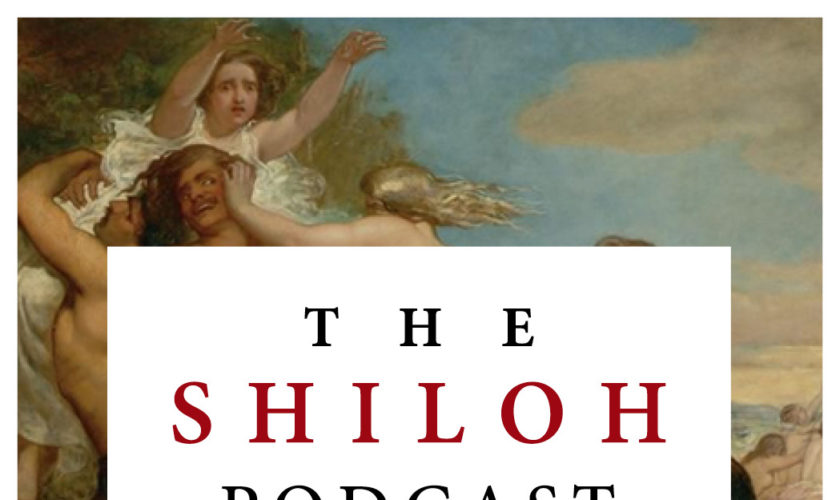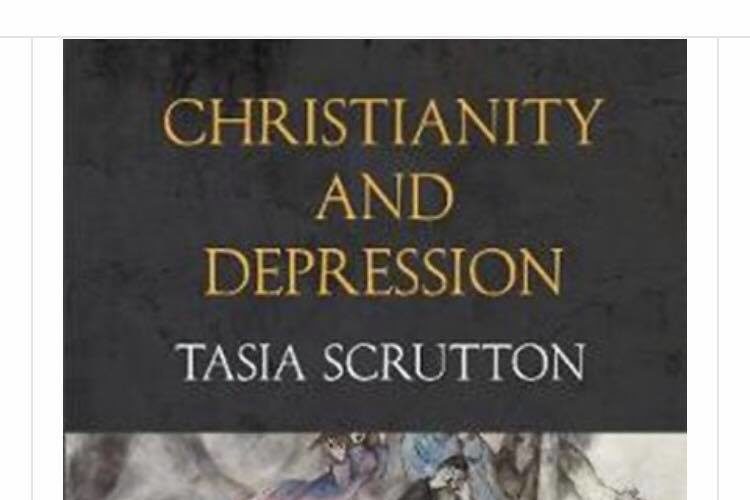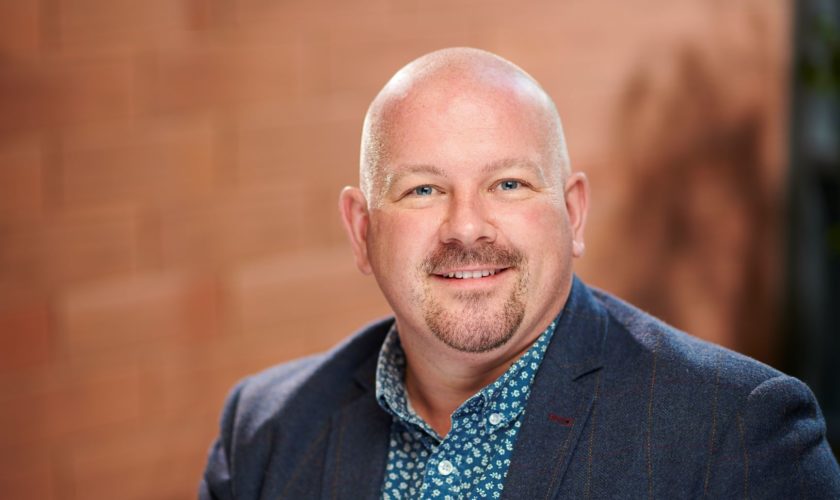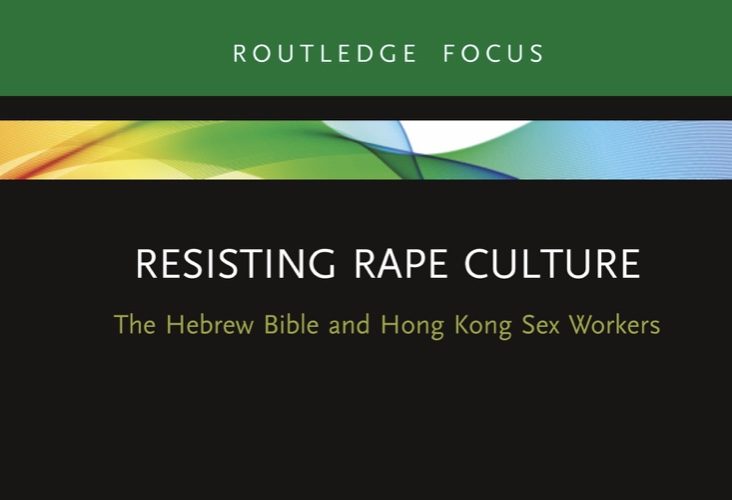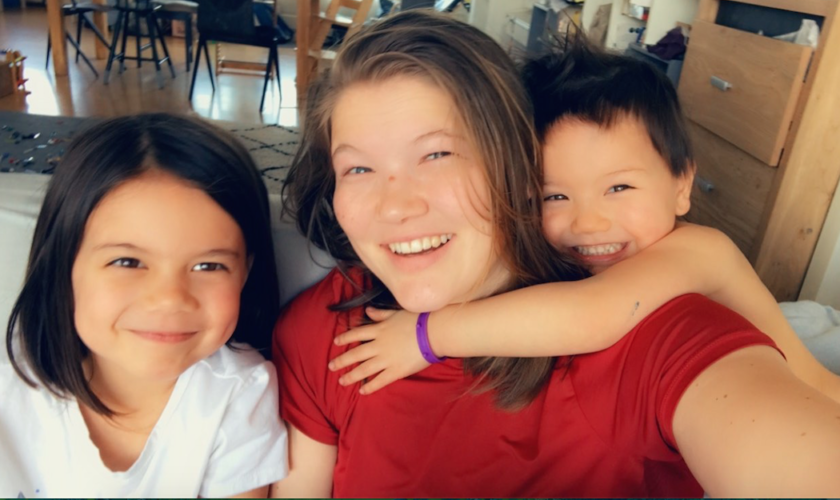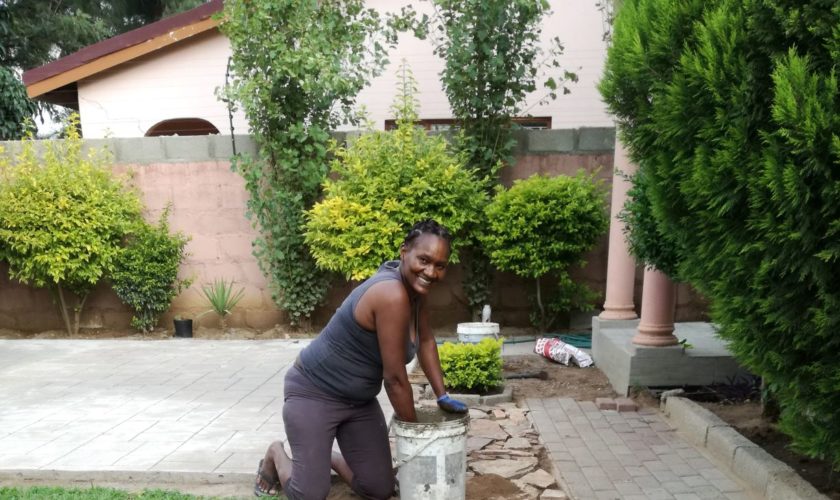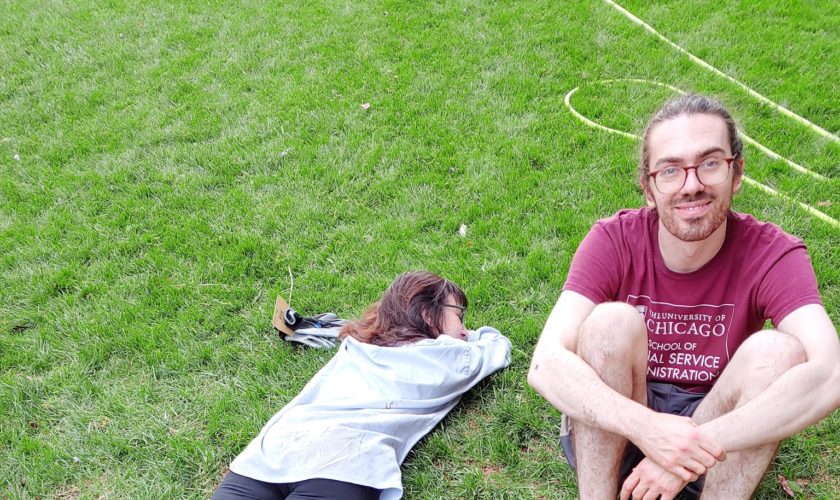Interview
The Shiloh Podcast has arrived!
Rosie Dawson, award-winning journalist, theologian, and host of The Shiloh Podcast shines a light on the stories and practices of religion that either contribute to or resist rape culture. Through conversations with scholars and practitioners, the podcast invites us all to think about ways that we can challenge and dismantle rape culture in our own communities.
Feast your ears on our new trailer and introductory episode, where Rosie discusses the origins of The Shiloh Project with Katie Edwards, until July 2020 one of the project’s co-directors.
Don’t forget to review, rate and subscribe to be notified of new episodes.
https://open.spotify.com/episode/0ZPIZec92xIr5hGJvlBiAm
Tasia Scrutton’s earlier post on the Shiloh Project blog (‘On Sex and Other Possibilities’) is one of our most widely read. Earlier this year Tasia’s new book Christianity and Depression was published by SCM. This book, on an important topic and written in an accessible style, is likely to be of interest to Shiloh Project audiences. Find out more!
Congratulations on your new book! (It has a very beautiful cover, too.)
Thank you!
Tell us about yourself, Tasia. How does your book relate to your work as a whole and how did this book come about?
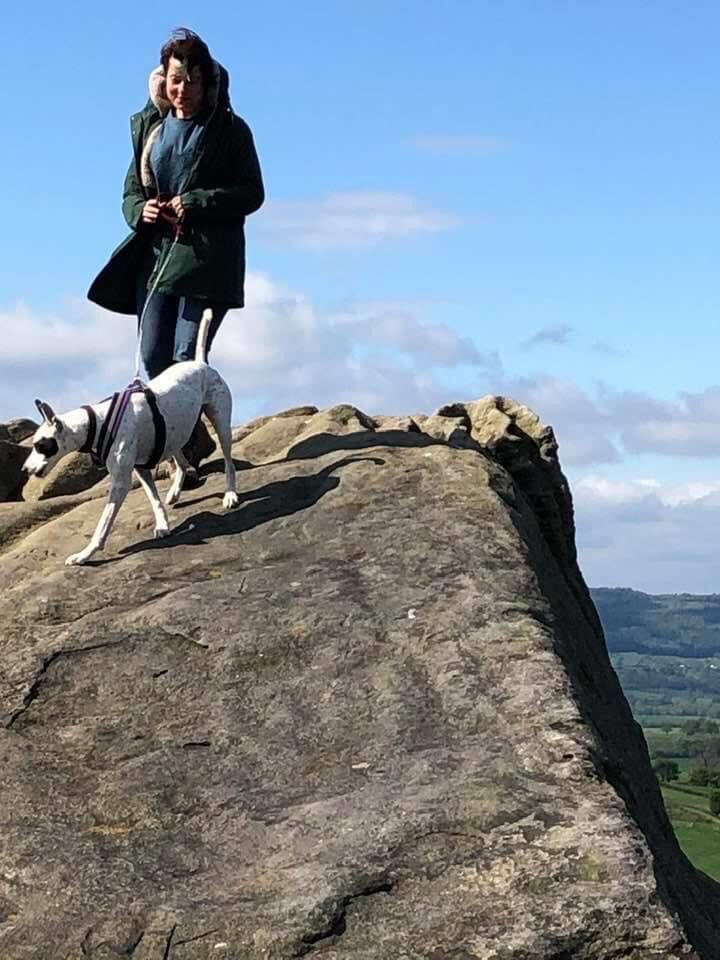
I’ll start with how this book came about….
One of the first times I remember thinking about doing research on Christianity and mental illness was when a friend of mine, who had contended with serious health problems from an early age and who suffered from depression, was told by her church that her depression was the result of her having been sinful. Initially I thought that view must be extremely rare, but as I researched further, it became more apparent that it is quite common in some Christian traditions. At the same time, it also became apparent that something like this view is common outside of Christianity or any religious tradition as well: it’s quite frequent that people (religious or otherwise) try to provide moral reasons or quasi-moral reasons (such as not doing enough exercise) for why one person suffers from a mental illness while another does not.
It was around then that I started thinking consciously about the ways in which theology and philosophy could engage with these kinds of claims. Having said that, in retrospect, I can now see other things that also led up to it. For example, when I experienced depression myself, I wondered how the idea that salvation is not only an otherworldly affair could be squared with my inability to feel happy – or, more generally, how faith could so spectacularly fail to make one feel better. I didn’t experience ‘sin’ accounts like my friend, but I remember some clergy expressing the view that medications for depression were inadvisable because they would ‘block’ something that could lead to spiritual growth. So, all of those things had been fermenting for a long time.
The academic work I had done previously had also paved the way for me to write something on the topic. For example, I had already written on the problem of evil – one of the points I make in my book is that we might think that good things can come out of evil (for example, that depression has helped some people to become more insightful or compassionate) – but that doesn’t stop depression from being undesirable and so an evil. That sounds like a simple point but it becomes very important in practical contexts, for example in avoiding either the tendency to idealise suffering (just because good can come out of it), or else to write off a period of suffering as necessarily meaningless because suffering is an evil. (Unlike some philosophers of religion, I do think suffering is an evil.)
What are the key discussion points of your book?
The book is about different interpretations of depression (and, often, mental illness more generally), and how those interpretations affect people’s experience of mental illness. My aim is to help people navigate the different interpretations of depression that are often presented to them, and to help them separate the wheat from the chaff – or good interpretations from bad. I look at interpretations such as that depression is caused by individual sin, by demonic possession or oppression, by God (in order to bring about spiritual growth), by purely biological factors, or by a combination of biological, psychological and social factors. As well as explanatory interpretations, I also look at the idea that depression is potentially transformative – that is, that it can give rise to increased compassion, insight, and a heightened appreciation of beauty. And as well as evaluating existing accounts, I point to some promising emphases for a Christian understanding of depression: the importance of recognising our animality; a social (rather than individual) view of sin and the demonic; hope and the resurrection; and affirming God’s solidarity with those who suffer.
For a more detailed precis of the book, see here: – but don’t forget to come back and read more on the Shiloh blog ?
What do you hope your readers will take from this book?
A therapist friend said people may well get out of the book whatever they want to get out of it at the time – whether or not I think I put it there. So, I’m aware that what I see the important points as being may not be the important points for others.
That said, a recurring theme when I’ve given talks on the book topic is that people tell me they’ve experienced sin interpretations of mental illness themselves (often coupled with other forms of spiritual abuse, such as homophobia), and thank me for taking these interpretations down. (I don’t think that’s too much of a spoiler!) I hope this book will come as a relief to those people who have experienced or are experiencing those interpretations, and closely associated interpretations (such as some demonic accounts). I also hope it will make religious leaders and peers think twice before putting forward damaging interpretations to vulnerable people.
As a corrective to sin interpretations, some people now emphasise the idea that mental illness is purely biological. While I think this is an improvement, another hope is that people will take the biopsychosocial model more seriously as a result of reading my book. That’s important because it’s truer to the evidence we have about the causes of mental illness and how to treat it, and because if we deflect attention from the social causes of mental illness – poverty, economic instability, forms of oppression such as racism, sexism, and homophobia – then we have less reason to do something about them. The Christian tradition has a distinctive voice when it comes to talking and doing something about social injustice, and (I argue) there are other (theological) reasons for why Christians should prefer a biopsychosocial model.
I can think of lots of other things I’d like people to take away with them from my book. I’ll mention just one further one though. I hope the book helps people bring together faith, understanding of mental illness, and conversations about the way we understand and treat non-human animals a bit more closely. Some of the causes of mental illness, and/or the collective failure to treat it appropriately, come from a denial of our own animality, and relate to our abuse of other animals. So, for example, we are often encouraged to deny our social needs, and our interdependence with others, in favour of an emphasis on individual competition that is ultimately extremely damaging to us. Christianity has been seen as part of the problem here, as it has been interpreted as a fundamentally dualistic worldview, with humans on the ‘spiritual’ (and only accidentally ‘physical’) side of the spiritual/physical divide. But I think this is a misunderstanding of the Christian tradition – and one that attention to doctrines such as the resurrection of the dead can help us with.
Can you clarify what is meant by both ‘mental illness’ and ‘depression’?
When I talk about ‘mental illness’ and ‘depression’, I mean anything that might reasonably be diagnosed as a mental illness or depression by a doctor (whether or not these have been diagnosed as such). In the case of depression, these include symptoms such as anhedonia (inability to feel pleasure), decreased motivation and concentration, or changes in sleep, guilt and hopelessness. Other common characteristics of depression not discussed in medical manuals can include, for example, a sense of one’s body being heavy and tired, and/or a decreased sense of free will or of possibility (see Ratcliffe, 2015).
‘Mental illness’ is a contested term because there is so much that is mental about (what we call) physical illness, and so much that is physical in (what we call) mental illness. In depression, for instance, people often experience tiredness, and report that their body feels heavy or leaden. Conversely, we usually feel pretty miserable when we have ‘flu. In addition to this, critics claim, ‘mental illness’ buys into mind/body dualism – something that’s increasingly recognised as a mistake, and a damaging one. I’m sympathetic to those concerns, but I don’t think changing the terms is the answer – it’s better to check our understanding of them instead. For the most part, we know how to use terms like ‘mental illness’ well – for example, to ask about a friend’s emotions if she says she is worried about her mental health. And while the boundaries are vague, there seem to be some things that make many ‘mental illnesses’ differ from many ‘physical illnesses’: mental illness is usually diagnosed on the basis of symptoms, for example, and the symptoms are often identical with the illness itself.[1]
How does your book engage with the Bible?
As you might expect, there’s a lot of ‘proof-texting’ in sin interpretations of mental illness. Here’s one example, from a bestselling Christian self-help book written by two psychiatrists, about anxiety disorders:
Worrying is a choice, since the apostle Paul commands us to ‘be anxious for nothing’ (Minirth and Meier, p. 174).
Likewise, demonic interpretations of mental illness often take as their starting-point the perception that the exorcisms performed by Jesus that are reported in the Synoptic Gospels are about (what we would now call) mental illness.
In order to respond to these, I try to attend more closely to the detail of the texts (it turns out only one exorcism account really seems to relate to mental illness, for example), and consider texts taking into account their original context. Among other things, I think this leads to a less individualistic and more political and social understanding of language of sin and the demonic. It also helps to drive a wedge between being demonically afflicted (possessed or oppressed), on the one hand, and having sinned on the other. There’s pretty much nothing in the Bible to suggest that being demonically afflicted is the result of having oneself sinned as some proponents of demonic interpretations suggest – if anything, the opposite is the case.
In addition to this, I’m also interested in what texts are used or not used in worship. For example, many people with depression report finding the Psalms, and especially the Psalms of Lament, particularly helpful. Perhaps that isn’t surprising, since we know from everyday experience that people sometimes find sad music more comforting than happy music when they themselves are feeling sad – so perhaps there is something consoling about it being ok to have certain feelings, and not being alone when having them.
Some Christian traditions regard happiness as normative, and there’s little space within some forms of worship for feeling anything but joy. People with depression often report that kind of worship making them feel worse, because they can’t participate in the feelings of joy that others have (see e.g. Hilfiker, 2002). I think there’s something important about having biblical texts such as the Psalms of Lament within the context of worship or liturgy, and so making space for a range of different feelings within communal and sacred contexts.
What do you see as the points of connection between gender-based and sexual violence, Christianity, and mental health?
I talk about this quite a bit in chapter 7 of my book. Many Christian traditions are generally good about talking about suffering – but not so good at talking about certain kinds of suffering. In particular, some kinds of suffering seem to be stigmatized. For example, in the Catholic tradition, all the patron saints of rape victims are figures who managed to avoid rape (perhaps by choosing to die instead). That doesn’t send out a very hopeful message to people who didn’t manage to avoid rape. Relatedly, Christians are very happy with the fact that Christ suffered at the crucifixion, but the suggestion that Christ’s suffering involved sexual humiliation has been rejected by some as ‘feminizing’ Christ (see Tombs, 2018). In other words, there are still some kinds of suffering it’s seen as shameful to experience, and where those who experience them are left out in the cold.
That’s important because of course depression and other forms of mental illness are frequently triggered by trauma, including the trauma of rape and sexual abuse. The Christian tradition can be good at offering support and especially a sense of God’s solidarity with those who suffer, whether through belief that God suffers in Godself, or through an emphasis on the suffering of Christ and the saints. However, in excluding certain stigmatized forms of suffering from the life of Christ and the saints, there is a failure to provide solidarity to people who have had certain experiences – and of course that is also a failure to support people who might suffer from mental illness. In other words, churches can be good at providing solidarity with people in the face of some kinds of suffering but not others, and that is relevant to mental illness.
Whether churches have parallel issues about mental illness as they do to sexual violence isn’t clear. There are fewer patron saints of people with mental illness than victims of rape, and so it is harder to say. Some of the saints and holy figures who are patrons – for example, Matt Talbot – had stigmatized problems such as alcoholism. However, perhaps the most famous patron saint of mental illness, St Dymphna, did not herself have a mental illness – her father did. So perhaps there are similar issues: it is harder for people to identify with a figure within the Christian tradition who is a ‘fellow sufferer who understands’ (in A. N. Whitehead’s words), if the kind of suffering you are experiencing is of a stigmatized kind, because there are fewer people held up as ideals who went through that kind of stuff. That means people experiencing depression and people who have experienced sexual violence might not get forms of support from the Christian tradition that would be available to them if they had experienced poverty or a physical illness instead.
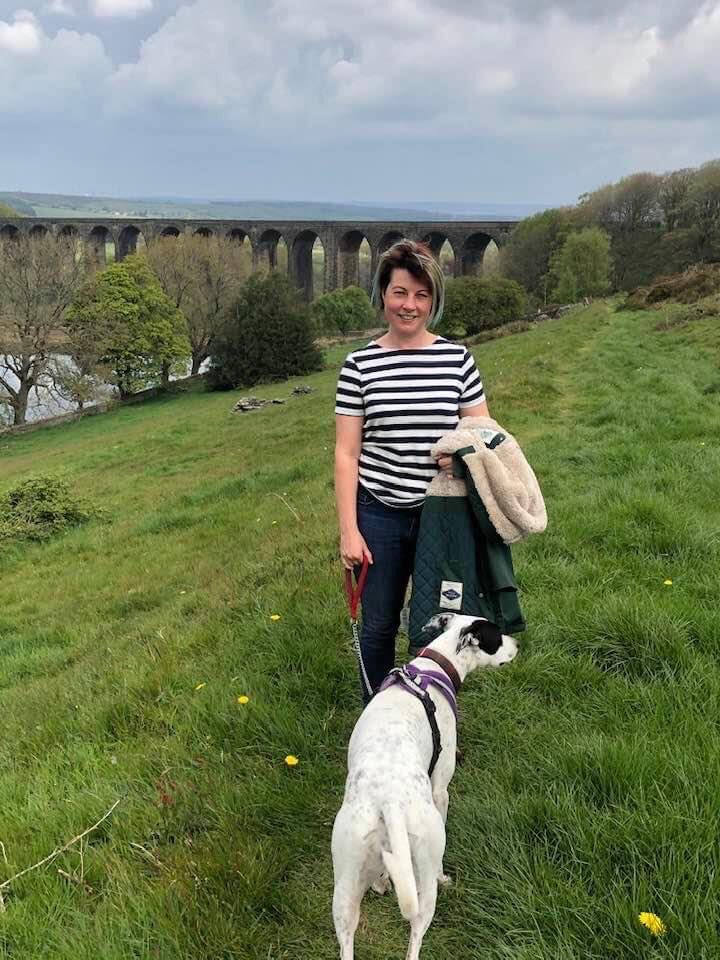
References
Hilfiker, David, 2002, ‘When Mental Illness Blocks The Spirit’, available at http://www.davidhilfiker.com/index.php?option=com_content&view=article&id=33:when-mental-illness-blocks-the-spirit&catid=14:spirituality-essays&Itemid=24
Minirth, Frank, and Meier, Paul, 1994, Happiness is a Choice: The Symptoms, Causes and Cures of Depression (Grand Rapids, MI: Baker)
Ratcliffe, Matthew, 2015, Experiences of Depression: A Study in Phenomenology (Oxford: Oxford University Press)
Tombs, David, 2018, ‘#HimToo – Why Jesus Should Be Recognised As A Victim Of Sexual Violence’ is available on the Shiloh Project.
[1] I’m indebted to Simon Hewitt for this thought.
Tell us about yourself. How does your book relate to your work as a whole and how did this book come about?
I’m Senior Lecturer in Theology and Religion at Edge Hill University. I got my PhD from the University of Birmingham in 2016, under the expert supervision of the most marvellous Dr Deryn Guest. I’m interested broadly in gender and sexuality and how it interfaces with religion, including LGBTQ+ identities, and queer theologies.
The Bible and Sexual Violence Against Men is my third monograph. One of the texts I discuss in the book is the story of Sodom and Gomorrah (Genesis 19: 1-29) and its legacy of being a text that condemns sex between men. The text is still used in an abusive way today in an attempt to bolster arguments against same-sex relationships or against gay marriage, for example. Religious teaching about the text has resulted in shame and stigma around same-sex relations, yet the passage is not about consensual, loving same-sex acts at all, it is about attempted male rape.
The book came about when, originally, I was working with the brilliant Dr Katie Edwards on a similarly-themed book. We quickly realised there was a lot to cover and there was therefore a need for two complementary texts. Katie’s book is also forthcoming in the Routledge series. It was such a rewarding experience to work with Katie, and with the editors of the Routledge Focus series on Rape Culture, Religion and the Bible – Prof Johanna Stiebert and Dr Caroline Blyth. I’m ever so grateful for their support during the course of the book’s journey.
What are the key arguments of this book?
Within the first chapter of the book, I set out the importance of the topic for readers of the Bible today. 1 in 6 men have experienced some form of sexual abuse and the most prolific case of serial rape in UK legal history involved the rape of nearly 200 men. In the book, I argue how religion and society, while bolstering hegemonic masculinity and sanctioning heteronormativity, have contributed to a blindness to male sexual abuse in today’s world. I explore the reasons for shame and stigma that surround male sexual abuse, along with unhelpful myths that prevent men from reporting and seeking support. In Chapter Two, I examine passages from the Hebrew Bible that describe male rape or attempted sexual violence against men: Lot’s daughters who get him drunk and rape him in order to procreate (Genesis 19: 30-38); Potiphar’s Wife’s sexual advances against Joseph (Genesis 39) and the attempted rape of men (Genesis 19; Judges 19). In Chapter Three, I turn the attention on Jesus’ enforced nudity at his crucifixion, and I examine sources that denote how such an act was a public humiliation and shaming of a man. The shaming was sexual. Reading Jesus as a victim of sexual violence remains a contentious issue in theology and biblical studies, as well as in wider faith communities. I explore why there is such stigma around these issues, which are undoubtedly connected to the fact he was a man.
What do you hope readers will take away from this book?
In general, critical studies into sexual violence experienced by men remain relatively scarce compared to scholarship exploring the rape and sexual violation of women. This is undoubtedly due to the fact that women experience sexual violence on a much greater scale than men. My aim is that the book generates an awareness of the lived realities of sexual violence against men, and that such an awareness will help debunk some of the myths that men cannot be abused.
I also hope that the book can serve a number of interested readers, including those who may be coming to explore the content of the biblical texts for the first time. For this reason, I wrote the book using a number of different critical approaches from theology, biblical and religious studies perspectives, while also exploring insights from the fields of sociology, psychology, criminology, as well as referring to legal cases and legislation, charity work and media-focussed articles.
Give us one quotation from your book that you think will make readers want to go and read the rest.
“a blindness to the sexual violence Jesus endured has led to a blindness to sexual violence against men in general.”
Q&A with Nancy Tan, author of Resisting Rape Culture: The Hebrew Bible and Hong Kong Sex Workers
Nancy Nam Hoon Tan has featured as activist on the Shiloh Project. From Singapore, where she is now resident, she taught Hebrew Bible at the Chinese University of Hong Kong. Her published work demonstrates acute sensitivity to power dynamics, focusing particularly on the intersections and tensions between gender, ethnicity and notions of belonging. Nancy’s earlier work showcasing this includes her monograph The ‘Foreignness’ of the Foreign Woman in Proverbs 1-9 (De Gruyter 2008) and her chapter on women, colonialism and whiteness in The Bible, Centres and Margins (Bloomsbury T&T Clark, 2018).
Her latest book is in the Routledge Focus Series Rape Culture, Religion and the Bible. Entitled Resisting Rape Culture: The Hebrew Bible and Hong Kong Sex Workers (2020), this a tour de force combining scholarship and advocacy.
Here is a Q&A with Nancy…
1. Tell us about yourself! How does your book relate to your work as a whole and how did this book come about?
For many years I was based in Hong Kong, where I taught and researched the Hebrew Bible. I opine that interpretations of biblical texts, both by academics and by faith communities, matter— maybe especially for individuals and communities who use the Bible to guide how they should behave and act. But the Bible and how it is interpreted also has bearing on society well beyond this – maybe more so than we think.
Most of my work has focused in some way on women, gender, power and oppression – and this book is no exception.
While living in Hong Kong, I volunteered as a teacher of English at the Jei Jei Jai Association (JJJ), the city’s first self-help and independent organization run by sex workers. This opened up for me the opportunity to get to know the sex workers as friends and to learn about their profession. This engagement also confirmed for me that the current interpretations of biblical texts on “prostitutes” and “prostitution” promote stigmatization and victimization of today’s sex workers.
With the help of Ms Sherry Hui, the co-ordinator for JJJ, I was able to hold the reading exercises on biblical texts with the sex workers that are at the heart of this book. It was Professor Johanna Stiebert who invited me to contribute the outcomes of these reading exercises in the framework of “rape culture”. Indeed, this couldn’t have been more apt, because the injustices that Hong Kong sex workers are subjected to stem from rape culture. And so… here is the book!
2. What are the key arguments of this book?
First, this book debunks rape myths such as: “sex workers cannot get raped”, “sex workers are immoral and deserve punishment”, and “if women don’t resist, they aren’t really raped”, etc. The book shows how such rape myths contribute to the escalating violence that Hong Kong sex workers are facing.
Second, the book also shows that biblical scholars rarely consider how certain biblical texts and interpretations of them, too, promote stigmatization of today’s sex workers and rape culture. This is thrown into relief by engaging Hong Kong sex workers in the reading and analysis of three biblical texts of the Hebrew Bible where the Hebrew root word znh, often translated as “prostitute” occurs: namely, Genesis 38, 1 Kings 3:16–28 and Hosea 1–3. Each reading unpacks where rape culture and the stigmatization of sex workers lie and through the sex workers’ standpoints, these texts are revealed in a new light.
3. What do you hope readers will take away from reading this book?
I hope readers will see the humanity and dignity of sex workers. Sex workers deserve to be respected in every way, and the hatred that society has mounted against them is cruel and unjust. I hope this book will change the way we talk about and the way we treat sex workers.
I also hope that this book will persuade readers that interpretations of the Bible need to be re-evaluated. I hope it will encourage readers to ask themselves, “Do interpretations do justice to marginalized communities today? Do they promote hatred and reinforce oppression?”
I hope readers will be informed and come to realise how subtle and dangerous rape myths can be: rape myths find support from biblical texts, and, consequently, biblical texts can become justifications for violence against humanity.
4. Give us one quotation from your book that you think will make readers go and want to read the rest!
“One of the sex workers disagreed with the statements the others made concerning women’s decision to return to abusive men because of the children. … She would not allow anyone to harm her in this way and would rather lose her life to fight for freedom. …She said if women would not protest against such wicked threats on their lives, then the children would not learn to fight for what is right and just. In this way, cycles of abuse continue. She regretted that that is how abusive men keep oppressing women…” Find it and read the rest!
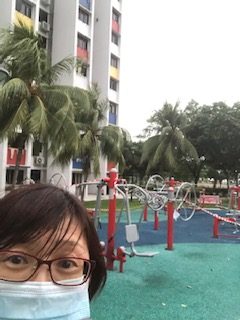
Nancy’s book is available for pre-order (see here) and will be dispatched by 1 September.
COVID-19’s impact on educate. and life in Honduras
Tell us about yourself. What have you been doing and what are you working on during this COVID-19 lock-in.
I’m one of the directors of a non-profit called educate. that supports community-driven educational projects in Honduras. We’re a volunteer-run charity, with a team in Honduras and a team in Amsterdam (where I live), so we are quite used to communicating digitally, but both sides of our work are being deeply affected by everything that’s going on at the moment. Here in Amsterdam, our fundraising has had to shift because we’ve had to call off all our fundraising events, and in Honduras many people in our community have lost their whole household incomes due to the lockdown, with no government safety net to provide support. Personally, I’m spending a lot of time on the phone with people across Honduras, especially our teachers and community project leaders, as well as supporting our Amsterdam team in shifting our work online. I also work as an au pair here in Amsterdam, so I’m doing home-schooling with three little kids on the side!
In Honduras, the government has imposed a strict and total lockdown: people are allowed outside once per week in a time block decided by their ID number, but the country has a 66% poverty rate and a huge informal sector, so for many people a lockdown means no way to put food on the table. That includes several members of our team in Honduras, so we sent some emergency funds over last week.
In general, though, I am struck by the positivity and resilience in the conversations I have with our community in Honduras. I think it comes from the fact that we work with a lot of teachers, and teachers are just the kind of people who are always supporting people, always looking for ways to rally together and make things work – especially a lot of the teachers we work with, who are used to working with limited resources and in tough conditions. They are endlessly driven and dedicated to the wellbeing and education of their students. Even without internet access and in some cases even electricity, teachers are making sure their students are safe and can continue learning even with everything that is going on.
Here in Amsterdam, things are, in many ways, more straightforward. We’ve have had to call off all our fundraising events for the upcoming months, but our team has been coming up with different ways to make sure we continue to raise the necessary funds for our ongoing projects, and to support our community through this time. I feel incredibly lucky to lead a team that has been so positive in coming together to make quick and often logistically difficult changes. Our grants team have expanded, our events team are taking our whole six-month event programme online, we’ve launched an emergency crowdfunding campaign that our community has been so generous in supporting, and our schools team who usually organise school-based service learning and fundraising partnerships, are working on a postcard project using student artwork from Honduras. I’m mostly focused on coordinating everything and leading our online communications across our different platforms – making sure we continue to share what we’re doing, telling stories from our projects, finding ways to raise awareness about the situation in Honduras, and promoting our fundraising campaigns and online events.
Which aspects of your work past and present might be particularly interesting for supporters of the Shiloh Project?
At the moment, we are sharing a lot of videos on our social media channels from parents, teachers, students and project leaders from our community across Honduras, who are talking about their experiences, giving advice, and sharing some words of solidarity. For us it’s a great way not only to raise awareness about the situation in Honduras, but to strengthen our community through these shared stories on our platform.
We also have a blog that has some interesting articles on it about our work, which supporters of the Shiloh Project might find interesting.
How are you bearing up and what’s helping you most?
educate. is all about community and community leadership, so we’ve been finding ways to keep our community strong despite being physically isolated from one another. We’ve been talking with our student and teacher community across Honduras more than ever, asking people to share photos and videos about what they are up to, and making collaborative video messages to share.
One of the teachers at a school we work with in Honduras, in a small village called Las Lagunas, asked if we could make a video from our Amsterdam team for her students sharing some advice and words of encouragement, so we got all the Spanish speakers on our Amsterdam team to record a message and we put them together for the kids in Las Lagunas. We’ve had photos and videos back from several of the students and people there. So we’re really trying to stay connected, and make sure everyone knows they’re not alone in this, even though our experiences may be vastly different.
A Bit about myself:
I am Mmapula Diana Kebaneilwe, a Womanist scholar and Senior Lecturer of Hebrew and Old Testament Studies at the University of Botswana. I did my PhD with the University of Murdoch in Western Australia, and completed in 2012. The title of my Thesis was “This Courageous Woman: A Socio-rhetorical Womanist Reading of Proverbs 31:10-31.” (The thesis can be found online here.) I have a wide range of research interests, including; women and the Bible; HIV, Aids, the Bible and women; women, gender and the Bible; the Bible and environmental issues; rape culture, gender and the Bible. Above all, my keen interest concerns gender justice and hence, researching on issues relating to women is important to me. The quest stems from my own context, which is patriarchal and marred by gender-based violence.
What I have been up-to during the COVID 19 Lock-in
To be honest, COVID 19 has left me confused, worried and without motivation or energy to do much. However, as the lock-in proceeds into the third week in my country (Botswana), I seem to be unstiffening a bit and I guess I am now getting accustomed to my ‘new normal’ of being just at home. I believe I am also getting to grips with the current reality and learning to live with the fact that the entire world is faced with a pandemic and everyone is affected in some way or other. On a more positive note, I have been doing what I enjoy most, which is gardening. I have started a small vegetable garden, which I have mixed with my usual plants and flowers that I tend every day. I find this very healing to my soul.
I also have a lot of academic work to do during this time (much of it is backlog from a few months ago). The work includes co-editing for a volume on ‘Mother Earth’, a book project, which is a collaboration with different scholars who presented papers at the 2019 Circle of Concerned African Women Theologians, held in Gaborone, Botswana. I am also working on my book, which is adapted from my PhD thesis and which has come back from a second round of the review process, just a few days ago. I have also received back reviews for a chapter that I am contributing to a project on #Jesus Too, edited by Jayme Reaves and David Tombs.
Aspects of my work, past and present that might of interest to the Shiloh Project supporters?
I think some of my work that might be of interest to supporters of the Shiloh Project may include first, my PhD Thesis (2012). This is so because in that I explore some of the issues that relate to the intersection between, the Bible, culture (in this case Botswana culture) and women. Attention is paid to the portrayal of a woman in rather strong and affirmative ways in Proverbs 31:10-31. Such is not commonplace in the Bible. I bring the portrait into engagement with how women are treated in my culture, especially in relation to their male counterparts and in relation to marginalization and disadvantages for women on different levels. My conclusion is that the text of Proverbs 31:10-31 unapologetically advocates for gender equality.
Another of my past works that may be of interest is an article titled “The Vashti Paradigm: Resistance as a Strategy for Combating HIV.” Ecumenical Review 63/4 (2011): 378-384. As the title suggests, in this article I see Vashti, a female character in the biblical book of Esther, as a heroine. Her subversiveness and defiance in the face of male oppressive authority celebrates her dignity as a woman. I advocate that Vashti can speak also to those who find themselves in similar situations of oppression. My conclusion is that despite the potential danger in challenging oppressive systems, cultures and contexts, like Vashti did, ‘it is never too late to say no to oppression’.
A forthcoming article might also be of interest, “The Untold Story of Mrs Noah: The Hebrew Bible, Gender and Media: An Intertextual Critical Discourse Analysis.” This is forthcoming in the BOLESWA Journal of Theology (2020 sometime). This piece is co-authored with a colleague and friend, Dr Sibonile E. Ellece, from the English Department of the University of Botswana. We try to reconstruct the life story of the wife of Noah. We argue that because of its androcentric nature, the Bible tends to omit the stories of many women, including that of Noah’s wife. We call the otherwise unnamed woman ‘Mrs Noah’ in order to problematize the un-naming, which not only obscures but virtually erases her identity. Our conclusion is that in our patriarchal contexts, too, women often suffer from a lack of media coverage, conveying the sense that their stories do not really matter, at least not as much as men’s stories. But in reconstructing Mrs Noah’s story, using intertextual critical discourse analysis, we maintain that she was a woman of courage: a wife, a mother, a home-builder and Noah’s pillar. She, too, like her legendary husband, must have professed strong faith, ensuring her survival and that of her family, while most of the entire world perished.
What is helping me most during this unprecedented time of COVID 19?
Like I mentioned before, gardening and decorating my home is something I enjoy doing. I spent my first day of lockdown painting one of the rooms in the house. I love it. I then started spending mornings and evenings doing some gardening, which includes planting vegies, trimming duranta plants, cultivating the soil around my little roses and other flowers, and just cleaning the yard – stuff I often do not have much time to do under normal circumstances. I have since been doing some yoga and pilates each evening in order to stretch my otherwise aching joints. This has been very helpful and is making me feel good, both physically and emotionally. I have now added some skipping rope exercises where I do 300 skips a day and that makes me feel fantastic. Of course, I am also trying to stay away from frequent visits to the kitchen and the fridge for some nibbles, because though these are particularly accessible ‘places’ currently (given the stringent restrictions on movement) it is not such a good idea to spend too much time there.

Rabbi Dr. Barbara Thiede
When my university (University of North Carolina, Charlotte) went on spring break March 2, I made the decision to see if I could put all my classes online. Because I also teach online for ALEPH Ordination Programs (a Jewish seminary which ordains rabbis, cantors, and rabbinic pastors), doing so was not as difficult for me as for some of my colleagues. In the meantime, my spouse, Ralf, and I moved roomfuls of furniture around in our little ranch house to accommodate our son and daughter-in-love, who moved out of a tiny one-room studio apartment in Brooklyn, New York, into our tiny home library (now outfitted with a bed, sitting area, and workspace!). We joked about how much the room would go for on Airbnb and promptly dubbed it R&B (Ralf and Barbara). We’ve been alternating the cooking, so I’ve been treated to some real culinary variety.
Next, we started a huge project in our backyard, clearing away a veritable mini-forest of dead shrubbery that wisteria had marked, claimed, and devoured, and built three raised garden beds. This also necessitated digging up loads of mulchy dirt, moving it aside, creating the beds, refilling the beds with the dirt and home grown compost, and planting our vegetables. This explains the picture of me lying face down in the grass while our son grins up at his dad. His back is stronger. So far, everything is thriving and we look forward to the first products gracing our table.

For the first weeks, working was very difficult indeed. Finding a
routine was challenging. My students have felt the stress and, since we
take the time to check in, it is clear to me that they are facing a
range of serious issues. One is a refugee whose mother
works at Wal-Mart; another is taking care of an elderly and sickly
grandmother. I’ve known what it is to have students in vulnerable
situations every semester of my teaching life, but now, I think it is
fair to say, they
all are vulnerable. One student has a daughter whose best friend
died of Covid-19 — she was in her early thirties; another was clearly
suicidal and needed connections with health care professionals.
Sometimes, I start our check-ins with lighter questions
just to relieve the stress: “A package just arrived at your door. It is
perfectly safe to open it. What’s inside?” Answers included, of course,
masks, cures, vaccine. And they included: “My mom!” “A puppy!” “A
boat!”
Which aspects of your work past and present might be particularly interesting for supporters of the Shiloh Project?
My current book, Male Friendship, Homosociality, and Women in the Hebrew Bible: Malignant Fraternities, treats a set of texts that demonstrate how male friendship depends on women’s bodies for its creation and sustenance. I am also preparing a paper for SBL entitled “Gang Rape, Murder, and Dismemberment in Judges 19-21 and Little Bee: How Biblical and Modern Authors Inflict Moral Injury.”
How are you bearing up and what’s helping you most? Am I behind in my work? Of course. Do I feel — all the time — that I can’t actually grasp the depth of dislocation the world is experiencing? I do. Do I sometimes resent the “we can get through all this” when so many won’t? Yes. Do I fear that we will not learn the lessons of this experience? I do. Humankind is notoriously insufficient at caring for humanity and the planet it lives on.
I am bearing up by walking a lot, by gardening as much as I can, and by listening to a lot of Sephardic-Ladino-Iraqi-Turkish music. It reminds me to dance. And I hope and pray for humanity to pay attention to the obvious lesson, here. We share this world unequally. We suffer its pain unequally. We are obliged to flatten that curve, too.
I’ve never used the phrase ‘these are strange times’ as often as I have over the past few weeks! On the day my Department closed its doors, I went into my third year class at 2pm and when it ended at 3.30pm, I was told we were being sent home and had to leave the building by 6 o’clock. I quickly grabbed books and papers that I thought I might need, rescued my office plants, and colleagues and students said goodbye to each other without the usual hugging! For the final year undergraduates, they have been deprived of the traditional ‘end of year’ closure – the stress and celebrations that go along with writing up dissertations and their last assessments, and all students felt the abrupt end to the academic term. In some ways, I’m enjoying working from home, pottering in our small back yard, undertaking a bit of DIY, doing on-line exercise classes, keeping up with household chores that never get done (yep, the skirting boards and shower tiles are gleaming), but I know it is a privilege to live with my partner, Bran, and for us to be relatively safe and secure, and to continue working. I am, of course, missing our lively Department and the bustle and business of term time, but we’re staying in touch with virtual coffee every day (we do this in real time too!). I’m so impressed and heartened by the way our students are adapting and coping with studying at home, some of them in challenging and very difficult circumstances during a very anxious time for them and their families. They are supporting each other and us brilliantly, and with good humour that brightens up the day. Yesterday, during a 3rd year catch up on TEAMS, two of them turned up with superimposed images of Trump and Johnson on their heads…they sort of know my left-leaning politics.
Like everyone, my usual routine is out of kilter. This coincided with the spring vacation, when I took some annual leave and switched off email, admin, and writing for a week or so. In January, we had arranged to remodel our kitchen during March and April, and before the lockdown we had ripped out our existing cupboards and cabinets, and unplugged the dishwasher and oven; it’s a shell of a room at the moment. For five weeks we’ve been cooking on a two-ring camping stove on our living room floor, washing up outside, and contributing heavily to the local Chester foodie scene by relying on the places that are offering take-aways. I keep telling myself we’re glamping and it’s an ‘adventure’.
I’ve got a few projects on the go. I’m working on a chapter on methodology in the study of religion and gender for a Handbook edited by Emma Tomalin https://ahc.leeds.ac.uk/philosophy/staff/142/professor-emma-tomalin and Caroline Starkey https://ahc.leeds.ac.uk/philosophy/staff/1161/dr-caroline-starkey – I’m a qualitative researcher so enjoy getting my methodological geek on. My new book, Motherhood, Voluntary Childlessness, and Christianity explores women’s religious reproductive agency in Christianity and their narratives and experiences of ‘choice’, and I’ll be getting that finished for Bloomsbury during my research leave later on this year. I’m also working with Sian Hawthorne https://www.soas.ac.uk/staff/staff31080.php and Sonya Sharma https://www.kingston.ac.uk/staff/profile/dr-sonya-sharma-57/ on the Bloomsbury Studies in Religion, Gender, and Sexuality series https://www.bloomsbury.com/uk/series/bloomsbury-studies-in-religion-gender-and-sexuality/ , and we’ve just launched a call for chapters for a new Bloomsbury Handbook on Religion, Gender, and Sexuality that we are editing together. We’d be delighted if Shiloh readers and members considered contributing! https://bloomsburyreligiongender.wordpress.com/
How am I coping? Well, I’m a swimmer and usually train about 4 times a week. April is the start of the open water swimming season when the rivers, lakes, and seas start to warm up enough to stretch out in ‘skins’ (just a swimming costume, no wetsuit). Normally, I’d be prepping for 5km and 10km events in the summer but instead I have taken up some surprising hobbies. I’ve started taking our friend’s dog, Sidney, for walks (they’ve just had a baby) and have found him to be an excellent listener as I talk at him (he’s great on career advice); I’ve discovered Radio 3; I have found out that I really like trashy TV (Making the Cut and Next in Fashion, anyone?); I’ve bought a hoola hoop; and I’ve completed a jigsaw. I barely know myself.
Tell us about yourself.
I’m Susannah Cornwall, Senior Lecturer in Constructive Theologies at the University of Exeter. I’m the author of various books on Christian theology, sexuality and gender, of which the most recent is Un/familiar Theology: Rethinking Sex, Reproduction and Generativity (Bloomsbury, 2017).
What have you been doing and are you able to work during this COVID-19 lock-in?
I’m Director of Education with responsibility for all our undergraduate and taught postgraduate programmes in Theology and Religion and Liberal Arts at Exeter, so this has been a spectacularly busy time, working out details of changes to assessments and exams, moving teaching online, and ever-changing contingency planning in response to the latest advice. We are also working out what will happen with admissions over the summer, and helping our students with a wide range of academic and pastoral issues raised or exacerbated by coronavirus. As ever, I’m in awe at their resilience, patience and good humour.
Work from home is really challenging now that it also involves full-time childcare: my husband (also an academic) and I are doing alternate work and childcare shifts. I’m fortunate to be in an institution that has made clear that it appreciates these are exceptional circumstances and that something has to give, and is encouraging us to prioritize our own and our dependents’ wellbeing. I have colleagues elsewhere who are being told that the expectation is that there’s no drop to their productivity during this time, which is terribly unrealistic and inhumane. However, there’s no getting around the fact that a constantly shifting mode and getting no uninterrupted time to work is going to have knock-on effects, and I hope institutions are going to take seriously the fact that there are equality, diversity and inclusion implications to all this that will impact on many academics’ pay, progression and job security for years to come.
Which aspects of your work past and present might be particularly interesting for supporters of the Shiloh Project?
I’m currently working on a constructive theology of gender diversity, and coronavirus is highlighting the fact that lots of the precarities trans people face are even more heightened in a pandemic. These are extreme times and big decisions are being made centrally for the sake of what we’re told is a common good, but of course there’s going to be collateral damage. This is a time when life looks almost unrecognizable, so there are all kinds of possibilities. People are learning about ways of life they didn’t know before; new relationships are being forged that didn’t exist before. So that’s exciting, but it also means there’s even more marginality and precarity than there was before.
But it’s an opportunity, too. When the world goes back to normal (will the world ever go back to normal?) what will gender look like? How will things be for trans and intersex people? What do all of us, cis and trans, endosex and intersex, want to carry over into our new world?
How are you bearing up and what’s helping you most?
I have it so much easier than many people: I have secure employment, a safe place to live, more than enough food, a garden, internet, and more. I live within walking distance of green fields and the edge of countryside. I’ve started running again. I’m enjoying doing more “slow cooking” (but not slow-cooking!) than normal, and my son is revelling in having everyone at home. He’s very used to one or other parent being away for several days or having had to leave early before he gets up in the morning. So I’m enjoying the fact that he’s enjoying it! I think I’ll also look back with gratitude at having had this unexpected extra time with him at home every day before he starts school in the autumn.
I love the small creative acts of kindness that people are doing around the neighbourhood: setting up WhatsApp groups to ensure everyone is okay and has enough shopping; some kids in the next road have set up a pop-up library (with hand sanitizer!) outside their house; people have been chalking murals and adventure trails on the pavement for children to enjoy during their walks; someone has made their front garden into a safari zoo with toy snakes, orangutans, birds and big cats to spot. All that said, I’m also finding it really hard. I feel sad that my son is missing out on so much time with his friends and amazing teachers. I’m feeling lethargic, powerless, and like I have only just enough energy to tread water and survive, when I somehow want to be making the most of this weird time. I’m feeling frustrated that I’m too exhausted to be creative or generative, or even think about grand schemes like “theology in the time of coronavirus”. I’m feeling angry that it’s taken this situation for people to realize how scandalous it is that nurses, care workers, supermarket workers, food producers and distributors are the people on whom society really relies and yet continue to be underpaid and badly treated.

